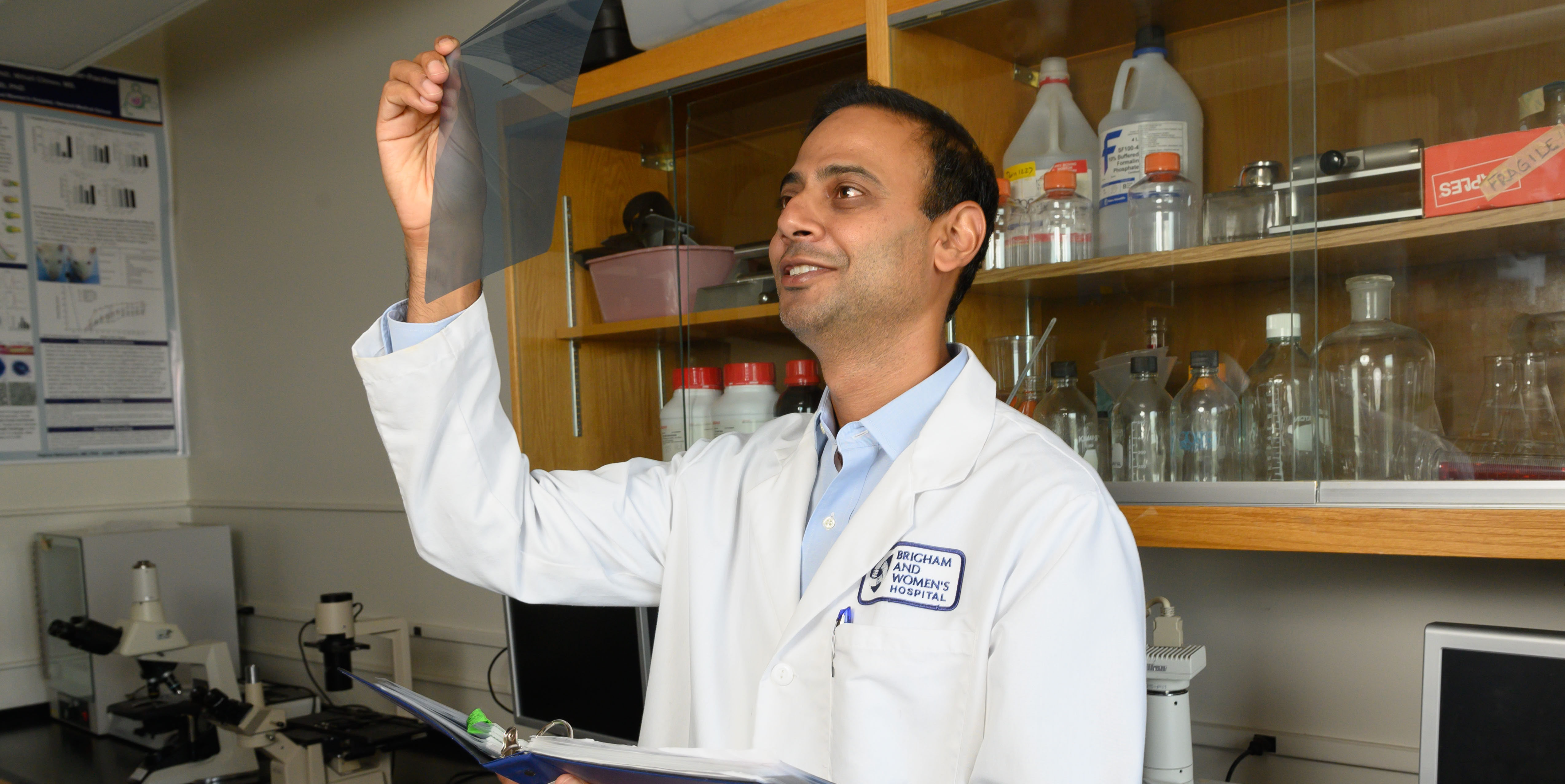
Indranil Sinha, MD
Principal Investigator, Skeletal Muscle Regeneration Lab
Assistant Professor of Plastic Surgery, Harvard Medical School
Direct Scaffold Printing
More than 500,000 patients in the U.S. suffer from skeletal muscle loss caused by traumatic injuries including gunshots or blast injuries suffered on the battlefield. Muscle wounds with more than 20 percent muscle mass loss incur a decrease in function due to impaired muscle regeneration, which serves to restrict motion. Currently, there is no clinical standard of care for volumetric muscle loss (VML), and treatment options are limited. Long-term solutions are therefore required to address the shortcomings of current therapies.
The goal of this project is to develop a reliable, effective, and customizable method to place an implantable scaffold capable of addressing the unmet need of patients recovering from VML. We are utilizing a custom-built, hand-held printer for 3D printing of the scaffold directly onto the injured muscle wound bed. The handheld printer is robust and can be used in any setting without the need of accessing an expensive imaging modality. It can even be used in settings without the physical presence of the surgeon, such as during prolonged and en route care of the patient.
Our objective is to demonstrate that accelerated muscle formation and integration can be achieved by implanting a hydrogel, impregnated with growth factors, using a pen printer. In addition to potentially improving muscle recovery, the device is small and will minimize response time to traumatic VML injuries.
Indranil Sinha, MD, is a plastic surgeon at Brigham and Women’s Hospital (BWH). Sinha earned his undergraduate degree at the University of California, Berkeley, and then completed medical school training at the University of Michigan, where he was inducted into the Alpha Omega Alpha Honor Society. Sinha completed his internship at BWH and went on to train in plastic surgery in the Harvard plastic surgery training program in 2014. His research interests include skeletal muscle stem cells and their implications, particularly how the skeletal muscle regenerative potential decreases with aging and how muscle stem cells can be used to treat volumetric loss. He is currently the lead investigator or co-investigator on three NIH-funded grants.
RELATED ARTICLES:
An Interview with Stepping Strong Award Recipient and Sports Injury Expert Rebecca Breslow
Handheld 3D Printers Developed to Treat Musculoskeletal Injuries
In Vivo Printing of Nanoenabled Scaffolds for the. Treatment of Muscular Skeletal Injuries
